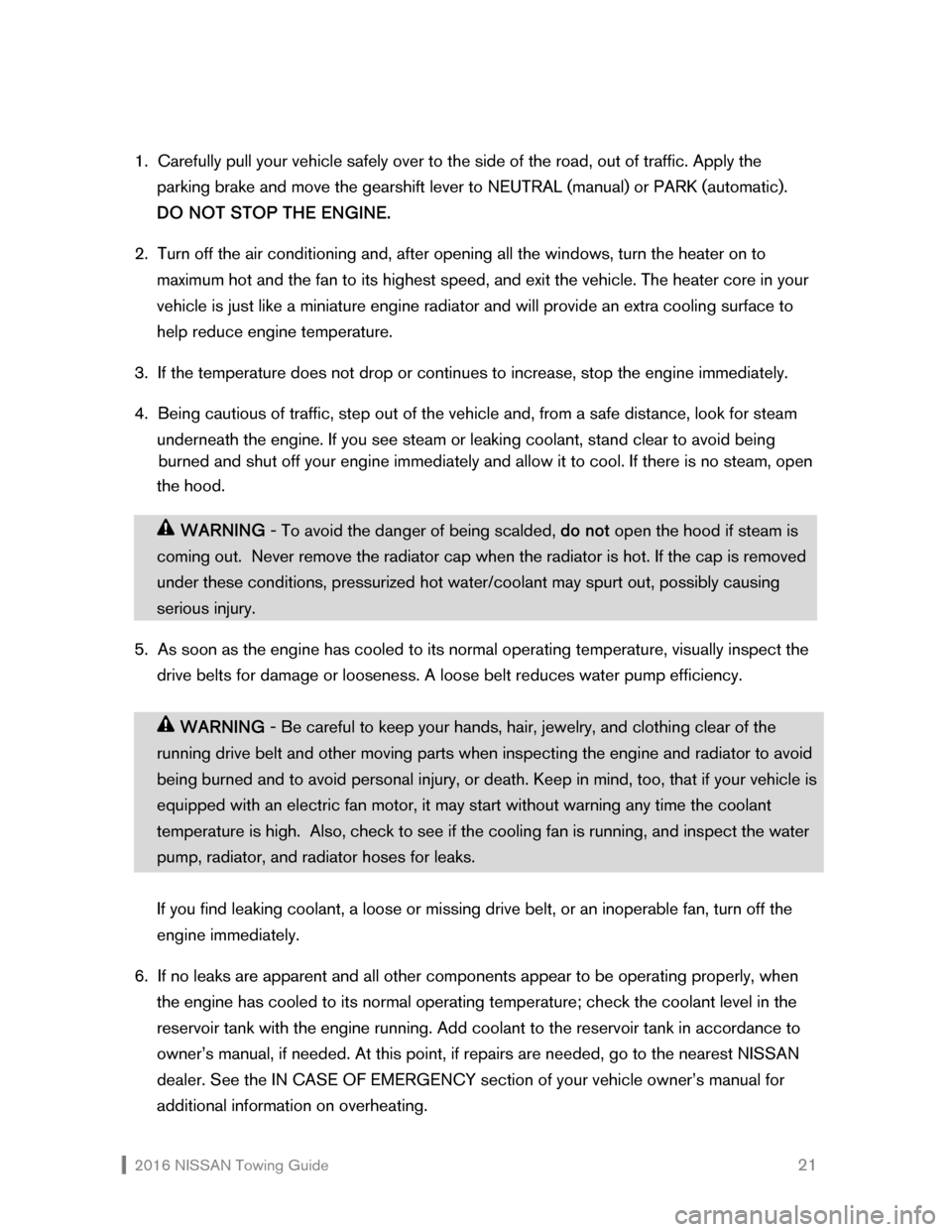hood open NISSAN ROGUE 2016 2.G Towing Guide
[x] Cancel search | Manufacturer: NISSAN, Model Year: 2016, Model line: ROGUE, Model: NISSAN ROGUE 2016 2.GPages: 27, PDF Size: 0.55 MB
Page 22 of 27

2016 NISSAN Towing Guide 21
1. Carefully pull your vehicle safely over to the side of the road, out of traffic. Apply the
parking brake and move the gearshift lever to NEUTRAL (manual) or PARK (automatic).
DO NOT STOP THE ENGINE.
2. Turn off the air conditioning and, after opening all the windows, turn the heater on to
maximum hot and the fan to its highest speed, and exit the vehicle. The heater core in your
vehicle is just like a miniature engine radiator and will provide an extra cooling surface to
help reduce engine temperature.
3. If the temperature does not drop or continues to increase, stop the engine immediately.
4. Being cautious of traffic, step out of the vehicle and, from a safe distance, look for steam
underneath the engine. If you see steam or leaking coolant, stand clear to avoid being
burned and shut off your engine immediately and allow it to cool. If there is no steam, open
the hood.
WARNING - To avoid the danger of being scalded, do not open the hood if steam is
coming out. Never remove the radiator cap when the radiator is hot. If the cap is removed
under these conditions, pressurized hot water/coolant may spurt out, possibly causing
serious injury.
5. As soon as the engine has cooled to its normal operating temperature, visually inspect the
drive belts for damage or looseness. A loose belt reduces water pump efficiency.
WARNING - Be careful to keep your hands, hair, jewelry, and clothing clear of the
running drive belt and other moving parts when inspecting the engine and radiator to avoid
being burned and to avoid personal injury, or death. Keep in mind, too, that if your vehicle is
equipped with an electric fan motor, it may start without warning any time the coolant
temperature is high. Also, check to see if the cooling fan is running, and inspect the water
pump, radiator, and radiator hoses for leaks.
If you find leaking coolant, a loose or missing drive belt, or an inoperable fan, turn off the
engine immediately.
6. If no leaks are apparent and all other components appear to be operating properly, when
the engine has cooled to its normal operating temperature; check the coolant level in the
reservoir tank with the engine running. Add coolant to the reservoir tank in accordance to
owner’s manual, if needed. At this point, if repairs are needed, go to the nearest NISSAN
dealer. See the IN CASE OF EMERGENCY section of your vehicle owner’s manual for
additional information on overheating.